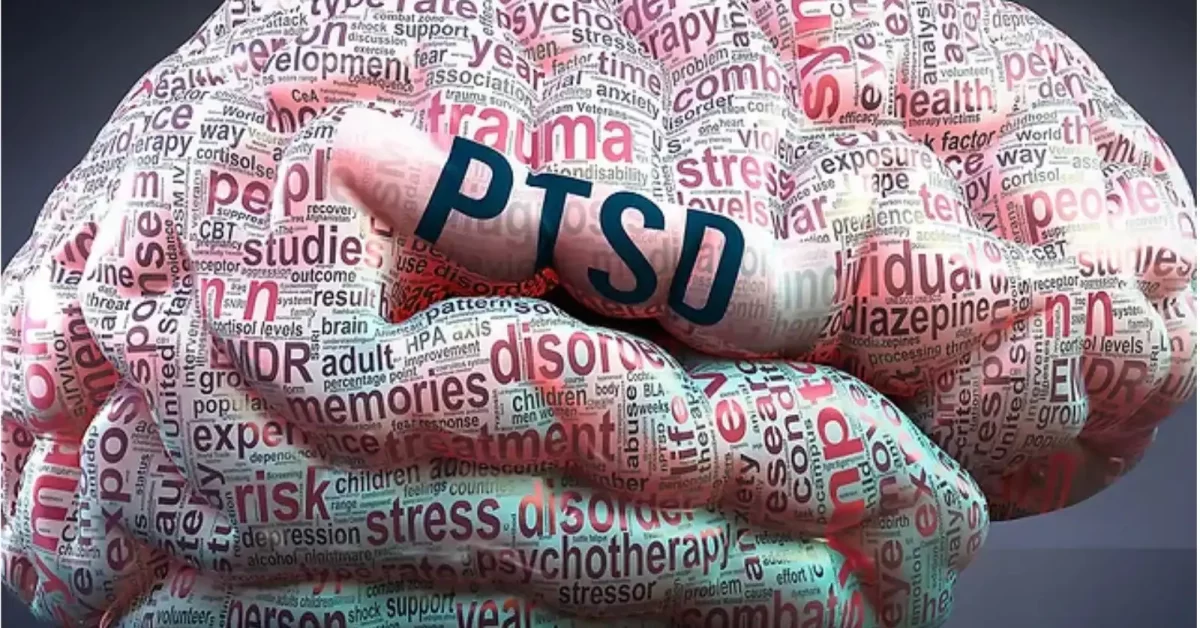Introduction: Healing the Hidden Wounds
Long after the terrible incident is over, trauma left unseen scars that could significantly affect our life.
A mental illness known as post-traumatic stress disorder, or PTSD, may strike anybody who has either personally experienced or seen a horrific, frightening incident.
PTSD may have terrible impacts on patients, leaving them depressed, nervous, and cut off from the world around them.
There is hope, nevertheless, for mending these buried injuries. Overcoming PTSD and recovering your life is doable with the correct support, therapy, and will.
Though it may not be simple, this rehabilitation road is worth traveling to discover completeness, serenity, and happiness again.
Gaining Knowledge about PTSD's depths
PTSD goes beyond simple worry or anxiety after a stressful event. Through intrusive thoughts, nightmares, avoidance of trauma reminders, unfavorable changes in thinking and mood, and more reactivity or arousal, this condition may seriously impair everyday living.
Untreated, PTSD may cause problems like despair, anxiety, drug misuse, and even suicidal thoughts or actions.
Often, PTSD symptoms first show up weeks or even months after the traumatic occurrence.
Tracked by apparently benign memories of the trauma, they may come and go in waves.
This unpredictability only makes managing the consequences of PTSD more challenging.
PTSD is a genuine psychological wound brought on by an extraordinarily demanding life event, not a sign of weakness.
PTSD may affect everyone who has experienced trauma, whether it is a soldier returning from battle, a victim of abuse, violence, or assault, someone who has faced a significant catastrophe or natural disaster, or a first responder often exposed to horrific occurrences; none is immune.
The road to recovery
If you or a loved one has PTSD, realize you are not alone in facing this difficulty. Evidence-based therapies abound that can help you control your symptoms and finally process the trauma.
Trauma-focused psychotherapy is one relatively successful kind of PTSD treatment.
This covers methods like eye movement desensitization and reprocessing (EMD) therapy, extended exposure therapy (PE), and cognitive processing treatment (CPT).
These treatments enable you to transform harmful trauma-related attitudes and behaviors and process the painful memories in safe surroundings.
Medications like antidepressants might potentially be recommended to assist control of brain chemicals disturbed by trauma and alleviate secondary symptoms like sadness, anxiety, and sleeplessness.
Working closely with a mental health specialist can help you choose the ideal mix of medicines and treatments for your particular circumstances.
Apart from expert therapy, self-care techniques are available to support the healing process.
All of these may help you build resilience and restore a feeling of control:
- Developing a support system for loved ones.
- Joining a support group.
- Practicing stress management methods like meditation and yoga.
- Getting regular exercise.
- Keeping a good diet and sleeping habits.
Along this road, you must be patient and kind to yourself.
Trauma heals not in a straight line; ups and downs, setbacks, and successes will abound. Celebrate your accomplishments, grow from the difficulties, and keep moving one foot in front of the other toward recovery.
A Great Tool for Your Healing Path
Should you or someone you know be struggling with trauma and PTSD, I strongly advise consulting the resource “[Quality Giant PLR] Understanding Trauma – The Complete Guide (Trauma FE).”
This thorough book offers priceless ideas, tactics, and help for negotiating the complexity of trauma healing.
Covering subjects like the neuroscience of trauma, emotional trauma first aid, somatic therapy techniques, healing developmental trauma, and so much more, this all-encompassing curriculum presents a complete view of understanding and overcoming trauma's consequences.
More importantly, the curriculum offers many ready-to-use resources like presentations, checklists, worksheets, and reports you might quickly use to hasten personal rehabilitation or provide trauma-informed care as a professional.
Visit this link to acquire “Online Therapy” and all its priceless tools:
Let the hidden scars of trauma not control you anymore. Accept this potent program as your road map for post-traumatic development and recovering the life you are due to be free from the hold of PTSD.
Looking Ahead with Hope
Although recovering from PTSD is somewhat difficult, it may finally result in great development, resilience, and a fresh respect for life.
You are doing the most intense healing when you gather the bravery to confront your trauma, go through your feelings, and combine your experiences.
Though the road ahead won't be simple, you won't have to travel alone.
Surround yourself with loving support, treat yourself kindly, and keep moving toward recovery—no matter how modest.
See the life you want to lead-free from the grip of PTSD, and let that vision inspire you every day.
You still have resiliency; you have endured what most people cannot understand. PTSD does not define you, even if it may cause great suffering.
You are a fighter; while they are concealed, these wounds are treatable. See brighter days ahead and have the bravery to keep fighting for the quiet, happy life you are due.

